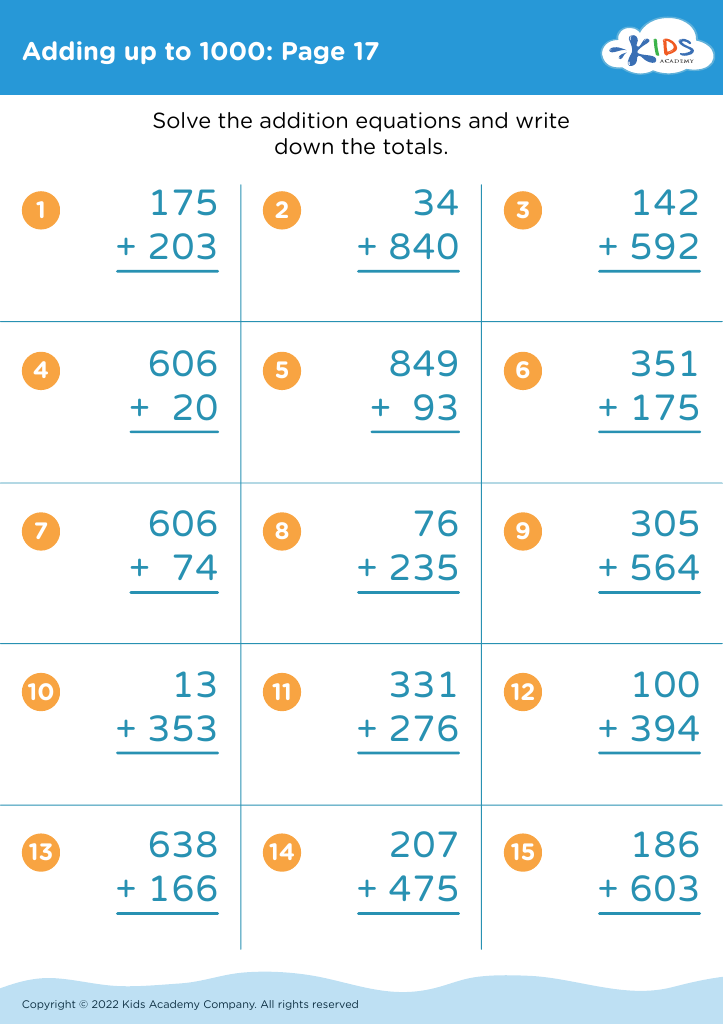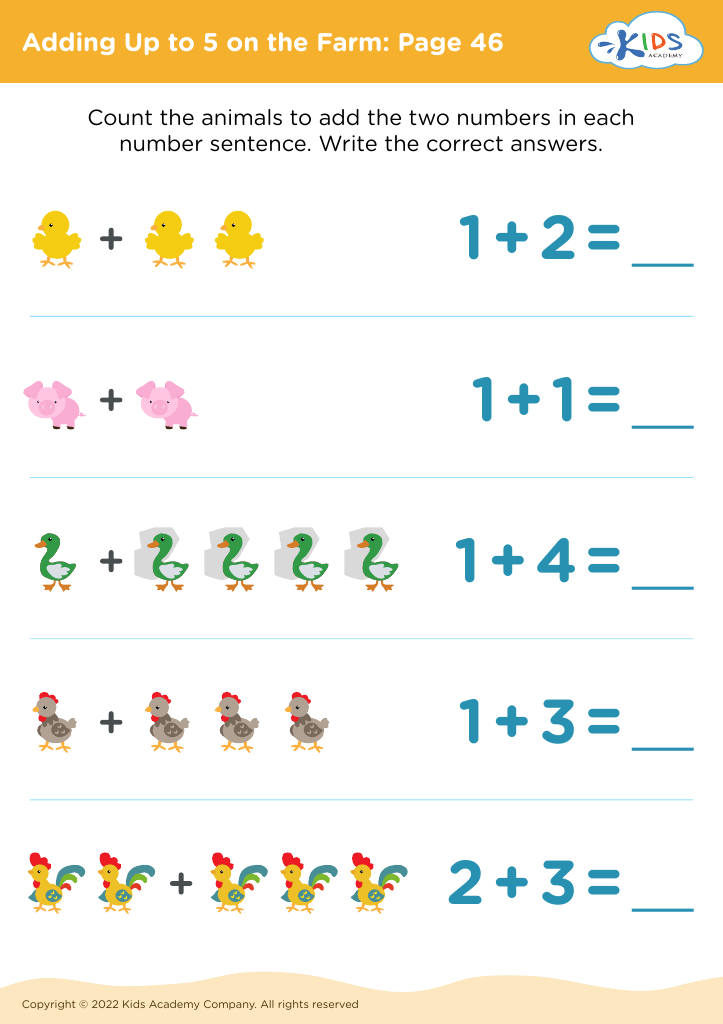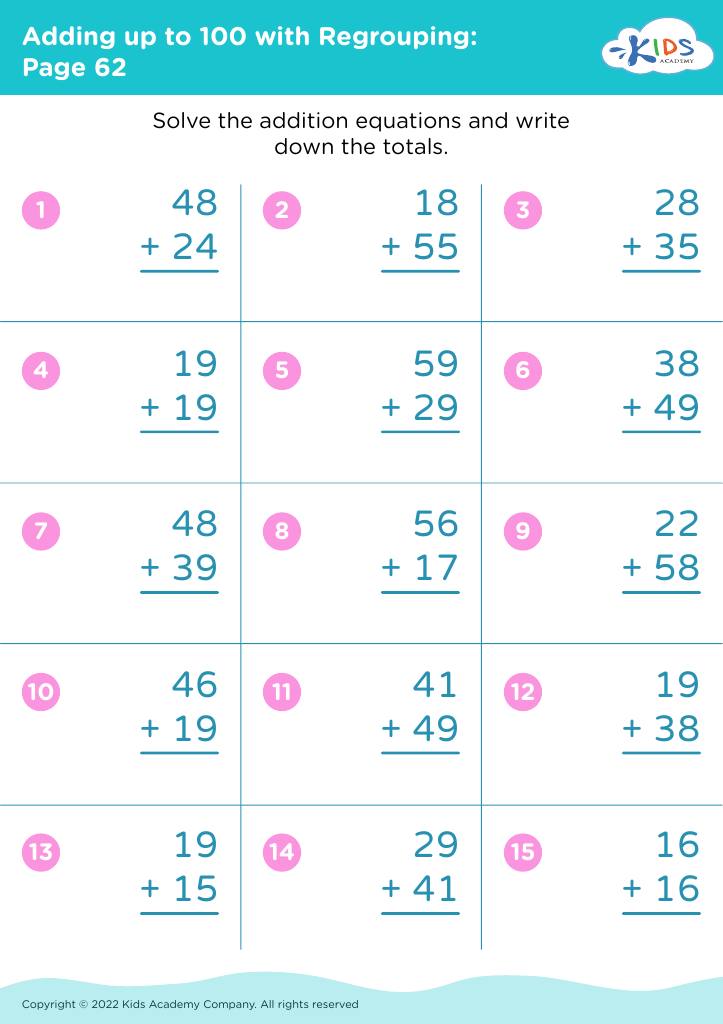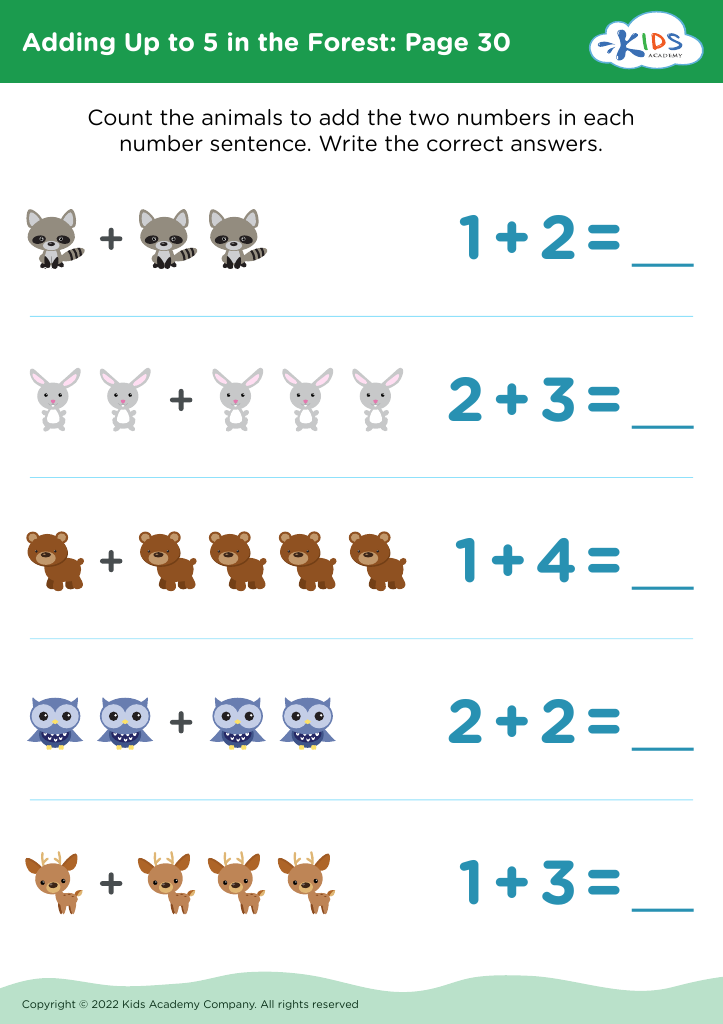Number comprehension Addition Worksheets for Ages 3-8
8 filtered results
-
From - To
Welcome to our engaging "Number Comprehension Addition Worksheets" designed for children aged 3 to 8! These educational resources foster a solid understanding of number concepts and addition skills through fun and interactive activities. Our worksheets encourage young learners to explore numbers, patterns, and basic addition in a playful way, ensuring they build confidence and proficiency. Featuring colorful visuals and age-appropriate challenges, these worksheets are perfect for home practice or classroom use. Help your child develop essential math foundations while making learning enjoyable and memorable. Explore our collection today to support your child's numerical journey!
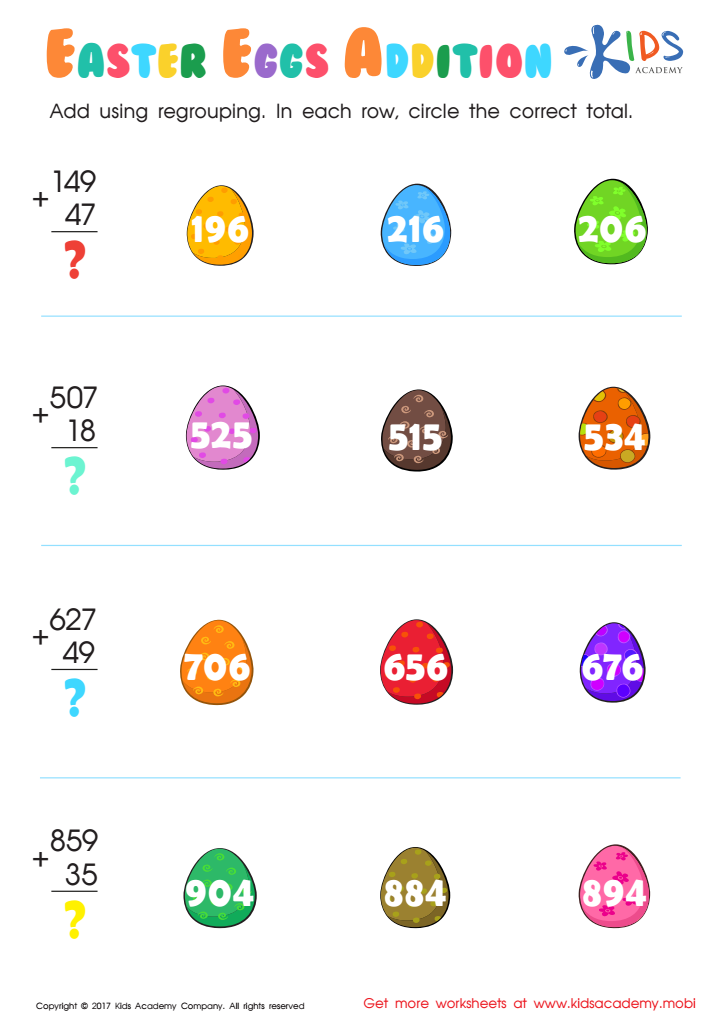

Addition with Regrouping Worksheet


7 Continents and 7 Seas Worksheet
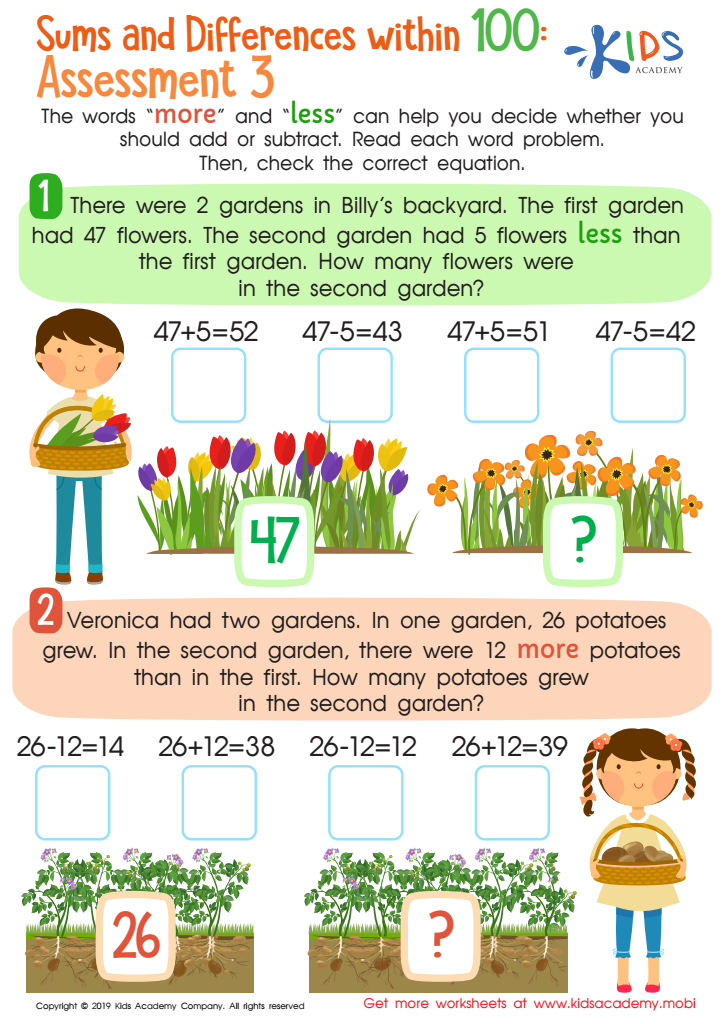

Sums and Differences Within 1 - Assessment 1 Worksheet
Number comprehension and addition skills are foundational for young learners aged 3-8, making it critical for parents and teachers to prioritize this area of education. Developing strong number comprehension helps children understand quantities, relationships, and the basic concepts of mathematics, which are essential for their academic growth.
When children grasp addition, they learn to manipulate numbers effectively, facilitating more complex math concepts later on. This skill enhances cognitive abilities, encouraging critical thinking and problem-solving. Moreover, mastery in addition nurtures confidence and fosters a positive attitude toward math, countering the anxiety many children develop in this subject area.
Engaging children in number comprehension and addition at a young age also promotes social skills through cooperative play and collaborative learning activities. Parents and teachers can use everyday opportunities—like counting fruits at the grocery store or adding blocks in a game—to reinforce these concepts in a fun and relatable way.
Strong number skills correlate with future academic success and open doors to various career pathways. Ultimately, fostering a solid foundation in number comprehension and addition sets children on a path of lifelong learning and enthusiasm for mathematics. Therefore, stakeholders in a child's education should actively engage and support their journey in mastering these foundational skills.
 Assign to My Students
Assign to My Students

